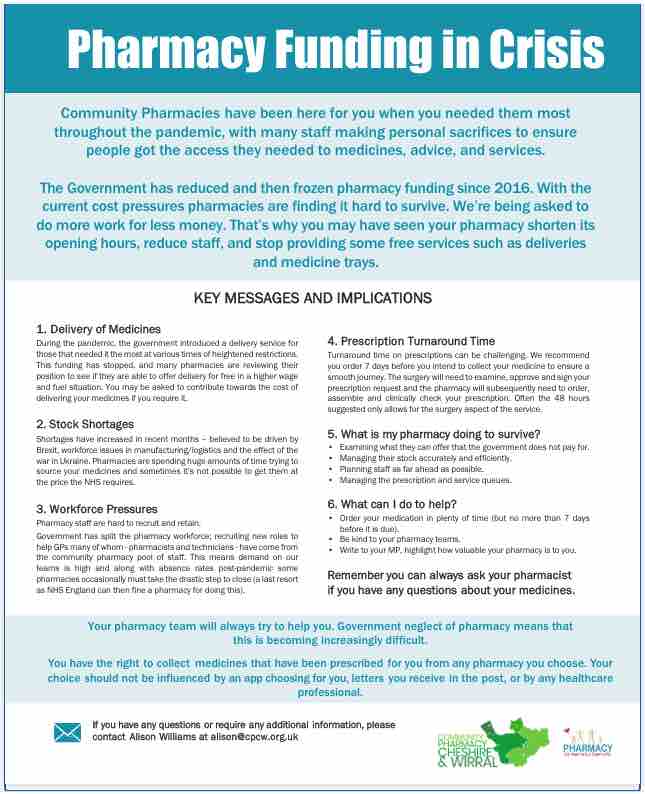In News
Follow this topic
Bookmark
Record learning outcomes
A local pharmaceutical committee has taken the current challenges facing community pharmacy to its local population, with an explanatory article in a number of local papers.
Community Pharmacy Cheshire & Wirral (CPCW) placed the article, headlined 'Pharmacy Funding in Crisis' in the Crewe Chronicle, Chester Chronicle, Macclesfield Express, Knutsford Guardian, Mid-Cheshire Guardian, Warrington Guardian and the Wirral Globe at the beginning of October.

The hard-hitting piece also explains the implications of factors such as Brexit, the recruitment of new roles into general practices, as well as current pressures on stock availability and prescription turnaround time, suggesting that pharmacies may occasionally close as a last resort, for which they may face a fine.
It closes by suggesting that patients can help by ordering repeat medication in plenty of time, by being kind to their pharmacy teams and by writing to their MP, highlighting how valuable pharmacy is to them personally.
“Your pharmacy team will always try to help you,” the article says. “Government neglect of pharmacy means that this is becoming increasingly difficult.”
Community Pharmacy Cheshire & Wirral chief executive officer Adam Irvine says: "We opted for the approach as a committee as we felt it was important that firstly the public understood why contractors were making the sorts of decisions that the terrible funding situation that pharmacy finds itself in is driving. Secondly, our contractors needed to see that as an LPC we both understood their plight as well as had taken clear steps to communicate this externally to all stakeholders.
"Locally the reaction has been positive. We’ve put the poster in all the local papers we could, as well as provided flyers for pharmacies to hand out to papers which have been well received. We’ve been able to use the material in stakeholder conversations to support discussions on MDS trays, on local closures and the reasons for them and even on use of branded generics with some places. It’s put a legitimacy to the context which we’re portraying and has allowed us to lodge that context in stakeholder’s minds without repetition so that the discussions can stay focused on issues at hand."
For information on the campaign, contact Alison Williams at CPCW via alison@cpcw.org.uk

